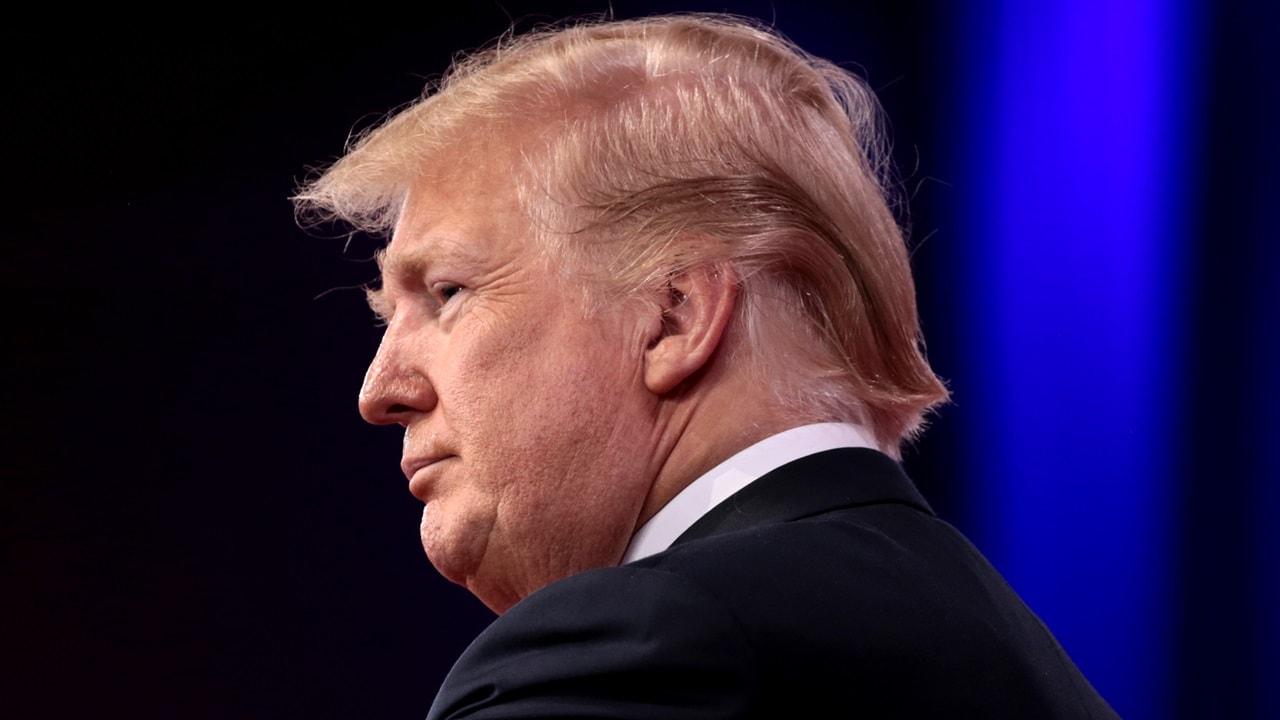If Donald Trump returns to power in 2025, conservatives could get their wish. They have talked for decades about fundamentally reshaping the federal bureaucracy ever since Ronald Reagan said “government is the problem” in his 1981 inaugural address.
“Now, so there will be no misunderstanding, it’s not my intention to do away with government. It is rather to make it work ― work with us, not over us; to stand by our side, not ride on our back. Government can and must provide opportunity, not smother it; foster productivity, not stifle it,” Reagan said.
Pro-Trump Think Tanks Look to Shape Next Administration
However, another Trump administration bolstered by support from pro-Trump think tanks including The Heritage Foundation and the America First Policy Institute (AFPI), that intend to staff the next administration, could accomplish Reagan’s goal.
“I would hope this is a seminal moment to crush the deep state and the administrative state that has operated with its own set of agendas for a long time,” said Russell Vought, Trump’s former budget director, now president of the conservative Center for Renewing America, that has crafted recommendations for a possible second term.
Donald Trump Aims to Weaken Federal Agency Power
Trump has vowed to weaken the ability of federal agencies to go against the president after watching the Executive Branch go rogue during his time in the White House. The FBI launched baseless investigations into his campaign’s nonexistent ties to Russia. The resistance in the bureaucracy looked for ways to slowwalk Trump’s initiatives. Another Trump term could realize in the bureaucracy what was realized in his first term in sealing the end of Roe v. Wade by establishing a solidly conservative Supreme Court majority for the first time since the 1930s.
“Underpinning the effort is what is called the unitary executive principle, which draws from a constitutional clause that vests ‘the executive power’ in the president. Conservative leaders argue that the clause gives the president virtually unchecked authority over the executive branch,” Andrew Restuccia and Jess Bravin write in the Wall Street Journal. “Trump could make progress on some of his proposals thanks in large part to the Supreme Court, whose conservative majority the former president helped entrench. Conservative justices have signaled support for the unitary executive principle and repeatedly espoused skepticism of federal agencies, signaling they could have sympathy for Trump’s contention that the federal bureaucracy must be reined in.”
Opponents Fear Intimidation
The idea that Trump could neutralize his opponents in the bureaucracy has Democrats and Never Trump Republicans terrified.
“Former Tea Party congressman Reid Ribble said Congress’s checks and balances against the presidency ‘will be undone entirely’ by another MAGA White House. Current and former Republican representatives like him projected that another Trump [administration] would actively obstruct Congress, from bypassing the Senate by installing unqualified ‘acting’ officials to run government agencies to simply ignoring subpoenas,” former DHS Chief of Staff Miles Taylor, who distinguished himself an anonymous leader, of anti-Trump opposition in the federal bureaucracy in his first term, wrote in Time Magazine. “If there’s a legislative agenda, one veteran GOP operative said it would be: “guns, gays, and girls.” The White House would pressure Congress to water down gun laws, overturn protections for same-sex marriage, and seek to outlaw abortion, putting the culture wars center stage.”
Taylor notes that former RNC Chairman and Maryland Lt. Gov. Michael Steele has suggested that Trump’s intimidation effort against his opponents would only increase in a second administration. He worries that Trump will restructure the FBI and Justice Department to exact revenge on his enemies.
Former Trump Attorney General Bill Barr worries that Trump could appoint people who would make weak legal cases that could hamper future administrations, particularly when it comes to immigration.
“I’m sympathetic to some of the initiatives that are being considered,” said Barr, who has been critical of the former president. “My concern generally is that the president is very imprudent and very excessive in anything he does, and therefore will end up doing things that end up actually curtailing executive power, rather than expanding it.”
John Rossomando is a defense and counterterrorism analyst and served as Senior Analyst for Counterterrorism at The Investigative Project on Terrorism for eight years. His work has been featured in numerous publications such as The American Thinker, The National Interest, National Review Online, Daily Wire, Red Alert Politics, CNSNews.com, The Daily Caller, Human Events, Newsmax, The American Spectator, TownHall.com, and Crisis Magazine. He also served as senior managing editor of The Bulletin, a 100,000-circulation daily newspaper in Philadelphia, and received the Pennsylvania Associated Press Managing Editors first-place award for his reporting.
From the Vault
‘He Should Quit’: Donald Trump Just Got Hit With A Devastating New Poll

